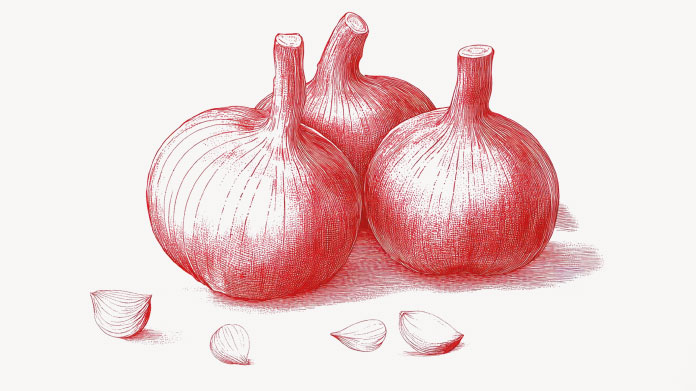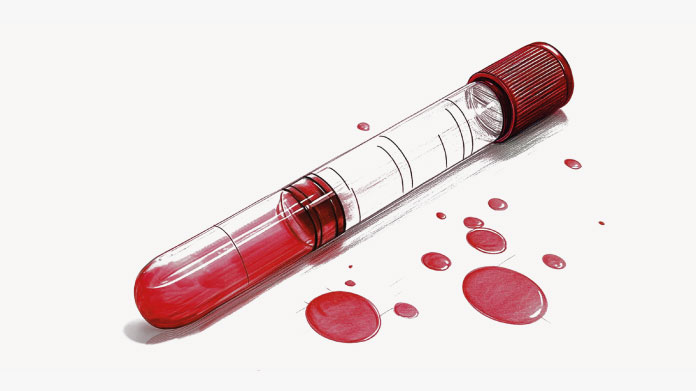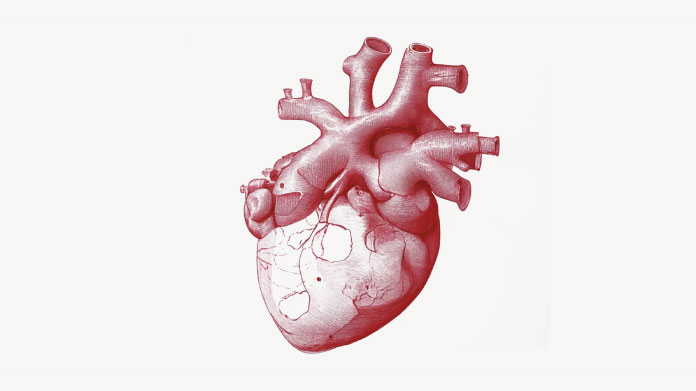Berberine - an effective and powerful activator of AMPK
In the United States, berberine is one of those substances that people just can’t get enough of. Though previously little-known among Western populations, it is now becoming the new anti-ageing and anti-diabetes weapon, because by improving insulin sensitivity and facilitating the transport of glucose into cells, it appears to be as effective as conventional drugs at enhancing the body’s ability to use glucose and insulin and so lower blood sugar.

Chinese and ayurvedic medical systems feature many plants that are still relatively unknown in Western medicine. Among them is Berberis vulgaris, also known as Barberry, the berries of which contain a potent plant alkaloid: berberine. This substance is also found in other plants: Coptis chinensis, Berberis aquifolium and aristata, Hydrastis canadensis. Its traditional use in ayurvedic and Chinese medicine dates back more than 2500 years where it is valued for its immune-stimulant, anti-fungal and anti-bacterial properties as well as its efficacy in relieving intestinal problems, particularly bacterial diarrhoea, intestinal parasites, fungal infections - Candida albicans, yeasts - and possibly resistant strains of staphylococcus aureus. But for around a decade now, there has been growing scientific interest in its impressive effects on the cardiovascular and metabolic diseases (type 2 diabetes and pre-diabetic states) which seem to be increasingly prevalent among Western societies, and in its crucial role in activating a key enzyme in metabolism: AMPK.
Its mechanism of action essentially increases activation of AMPK
AMPK (Adenosine Monophosphate activated Protein Kinase) is a fundamental and ubiquitous enzyme which plays a role in cellular energy homeostasis. The effects of AMPK activation are primarily:- stimulation of hepatic fatty acid oxidation and ketogenesis,
- inhibition of cholesterol and triglyceride synthesis, and of lipogenesis (formation of fats),
- stimulation of skeletal muscle fatty acid oxidation and glucose absorption by muscles
- modulation of insulin secretion by pancreatic beta cells.1
AMPK - the cellular enzyme that promotes longevity and reduces fat stores
This enzyme thus participates in the regulation of energy metabolism and food intake and in tissue sensitivity. It also plays a key role in certain metabolic diseases such as diabetes and its complications, insulin-resistance and obesity.AMPK activation determines body fat composition but it declines with age leading to, amongst others, weight gain and predisposition to the diseases linked to excess weight.
Most Western societies today are experiencing wide scale chronic over-consumption resulting in impairment of vital functions such as proper uptake of glucose and fats from blood, the accumulation of cellular waste and negative changes to longevity genes. Outwardly, this manifests as unwelcome weight gain, type 2 diabetes - diagnosed or undiagnosed, degenerative diseases and premature death. Fortunately - since few of us are able to consistently restrict our calorie intake - scientists have discovered that when activated, the cellular enzyme AMPK mimics the beneficial effects of calorie restriction including loss of excess body weight.
Extensive research shows that by increasing AMPK activation, several factors in the ageing process can be reduced, restoring cells’ youthful vitality.
Pre-clinical research showed that boosting AMPK activity was associated with:
- an increase in lifespan of 20%-30%,
- a reduction in fat stores (the particularly dangerous abdominal fat),
- an increase in insulin sensitivity,
- a decrease in cholesterol and triglycerides,
- suppression of chronic inflammation and
- improved activation of the SIRT1 enzyme (similar to that conferred by resveratrol) and the P53 gene (a tumour suppressor gene).
In activating AMPK, berberine thus acts at several levels:
- By increasing production of GLUT4, a glucose transporter found only in muscles and fat cells, and by improving insulin sensitivity, it facilitates intracellular glucose transport, enhancing the body’s use of both glucose and insulin and thus lowering blood sugar and glycated haemoglobin (HbA1c),
- By stimulating fatty acid metabolism in the mitochondria, it reduces circulating levels of blood lipids: triglycerides and LDL-cholesterol.
- By increasing fat-burning, it aids weight loss.
- It also helps to increase mitochondrial biogenesis and improve elimination of waste products from the body (non-functional proteins, for example),
- By mimicking calorie restriction, it extends lifespan by 20%-30% (in animals).
As effective as Metformin against diabetes
All these properties mean berberine can be favourably compared with metformin, the drug widely-prescribed in allopathic medicine for increasing insulin receptor sensitivity and restricting glucose production by the liver (neoglucogenesis) and the first line treatment for weight-associated type 2 diabetes3.In the course of carrying out the following studies, researchers were surprised at berberine’s ability to lower blood sugar which they judged to be very similar - and sometimes superior - to those of metformin.
In one three-month trial, 36 adults with newly-diagnosed type 2 diabetes were randomly assigned to receive either berberine or metformin (500mg, three times a day). Berberine’s blood sugar-lowering effect was found to be comparable to that of metformin. Significant changes were observed in the group given berberine, with reductions in:
- Glycated haemoglobin (HbA1c) from 9.5% to 7.5% (a decrease of around 21%)
- Fasting blood sugar from 190.8 to 124.2 mg/dl
- Post-prandial blood sugar from 356.4 to 199.8 mg/dl
- Plasma triglycerides from 100.5 to 79.2 mg/dl
- Glycated haemoglobin decreased from 8.1% to 7.3% (a reduction of around 10%).
- Over the first seven days of treatment, berberine reduced fasting blood sugar from 172.8 to 140.4 mg/dl and post prandial blood sugar from 266.4 to 210.6 mg/dl.
- During the second week, there were further decreases in fasting and post-prandial blood sugar (to 135 mg/dl for fasting and 189 mg/dl for post-prandial) and they remained at these levels thereafter.
- Fasting insulin decreased by 28.1%.
- Insulin resistance decreased by 44.7%.
- There were significant reductions in LDL- and total cholesterol.
Berberine mimics insulin’s action by increasing glucose uptake ability by 3T3-L1 adipocytes (fat cells) and L6 myocytes (muscle cells) in an insulin-independent manner. Berberine inhibits activity of protein tyrosine phosphatase 1B (an important negative regulator of insulin and leptin signalling in vivo). It also increases phosphorylation in 3T3-L1 adipocytes. In diabetic mice, berberine has been shown to lower hyperglycaemia and improve glucose tolerance, but does not increase insulin release and synthesis.
It regulates dyslipidaemia
Another recent study was conducted on 116 patients with type 2 diabetes and dyslipidaemia who were randomly assigned to receive 1 gram of berberine a day or a placebo for three months. In the berberine group, decreases were noted in:- Glycated haemoglobin - from 7.5% to 6.6% (a reduction of around 12%),
- Fasting blood sugar - from 7.0 to 5.6 mm/L (126 to 100.8 mg/dl)
- Post-prandial blood sugar - from 12.0 to 8.9 mm/L (216 to 160.2 mg/dl)
- Triglycerides - from 2.51 to 1.61 mm/L (220 to 141 mg/dl)
- Total cholesterol - from 5.31 to 4.35 mm L (205 to 168 mg/dl)
- LDL-cholesterol - from 3.23 to 2.55 mm/L (124.9 to 98.6 mg/dl)
It combats excess weight and obesity by reducing the size and number of adipocytes
Obesity is a primary cause of metabolic syndrome and is due to an increase in the number and size of adipocytes. If adipocyte differentiation and proliferation can be inhibited, metabolic syndrome can be treated and prevented. In researching ‘anti-obesity’ medication, a new study5 examined the effects of traditional Chinese plant preparations on differentiation of 3T3-L1 pre-adipocytes.Two of these plants, Coptidis rhizome and Phellodendri cortex, both of which contain berberine, were shown to inhibit adipocyte differentiation.
In fact, berberine was found to inhibit mRNA and protein expression of PPARy as well as C/EBPα (required for adipogenesis (creation of fat cells) and normal adipocyte function) and it inhibited lipid accumulation in adipocytes.
These results suggest that berberine could reduce the size and number of fat cells and thus have ‘anti-obesity’ effects.
It improves memory
According to a recent study on rats, berberine may also be effective at improving memory. Research conducted in India suggests that berberine inhibits cholinesterase activity and increases the release of glucagon-like peptide (GLP-1)6.Cholinesterase is the enzyme which breaks down acetylcholine, a crucial neurotransmitter for memory and concentration.
GLP-1 plays an essential role in diabetes as well as in cognitive function, learning and neuroprotection.
Researchers evaluated lipid peroxidation, glutathione levels and cholinesterase activity in the rats’ cerebral cortex and hippocampus.
Thirty days after diabetes had been induced, severe learning and memory impairment was observed in the rats, together with increases in lipid peroxidation and cholinesterase activity and a decrease in glutathione.
In contrast, in the berberine-treated diabetic rats, cognitive performance increased and hyperglycaemia, oxidative stress and cholinesterase activity all decreased, the effect being the same as that of metformin combined with vitamin C.
Effective dosage
According to the studies conducted on berberine, the average recommended daily dose varies from 1000mg to 1500mg a day, split into two or three doses, taken before the three main meals of the day.To fully benefit from its effects, it should be taken for at least three months, since optimal activity is only observed after two weeks’ regular supplementation.
Apart from a few reports of temporary mild constipation at the very start of supplementation and short-term gastro-intestinal discomfort - possibly linked to its antimicrobial action - berberine is completely free from side-effects.
Berberine can therefore be recommended as a nutritional supplement to be taken the whole year round to combat:
- ageing,
- type 2 diabetes,
- risk factors for cardiovascular disease (raised LDL-cholesterol and triglycerides),
- excess abdominal weight.
References
- Bhutada P, Mundhada Y, Bansod K, Tawari S, Patil S, Dixit P, Umathe S, Mundhada D. Protection of cholinergic and antioxidant system contributes to the effect of berberine ameliorating memory dysfunction in rat model of streptozotocin-induced diabetes. Behav Brain Res 2011 Jun 20;220(1):30-41.
- Winder WW, Hardie DG. AMP-activated protein kinase, a metabolic master switch: possible roles in type 2 diabetes. Am J Physiol Jul 1999;277(1 Pt 1):E1-10 Viollet B, Mounier R, Leclerc J, Yazigi A, Foretz M, Andreelli F. Targeting AMP-activated protein kinase as a novel therapeutic approach for the treatment of metabolic disorders. Diabetes Metab Dec 2007;33(6):395-402.
- Yin J, Xing H, Ye J. Efficacy of berberine in patients with type 2 diabetes mellitus. Metabolism. 2008 May;57(5):712-7.
- Chen C, Zhang Y, Huang C. Berberine inhibits PTP1B activity and mimics insulin action. Biochem Biophys Res Commun Jul 2 2010;397(3):543-7
- Zhang Y, Li X, Zou D, Liu W, Yang J, Zhu N, Huo L, Wang M, Hong J, Wu P, Ren G, Ning G. Treatment of type 2 diabetes and dyslipidemia with the natural plant alkaloid berberine. J Clin Endocrinol Metab. 2008 Jul;93(7):2559-65. Epub 2008 Apr 8.
- Ikarashi N, Tajima M, Suzuki K, Toda T, Ito K, Ochiai W, Sugiyama K. Inhibition of Preadipocyte Differentiation and Lipid Accumulation by Orengedokuto Treatment of 3T3-L1 Cultures. Phytother Res 2011 May 9. doi: 10.1002/ptr.3493.
Keywords
56 Days
Very happy with the order and the…
Very happy with the order and the prompt team's response to an identified issue with my order.
KUQI Fatmir
63 Days
15 + years as a customer
I have been using their products for over 15 years as I find both the quality and pricing excellent.
Del Chandler
65 Days
Good quick delivery
Good quick delivery
Timothy O Shea
66 Days
Good service
Good communication following order. Product came within the time frame and was well packaged. The only confusing thing I found was in checking out. For some reason it is not clear how to do so and the current system should be improved.
Joe O Leary
75 Days
Simple and fast.
Simple and fast.
Nina
76 Days
Great product was definitely what is…
Great product was definitely what is says and arrived on without issue
customer
82 Days
I love reading those product facts on…
I love reading those product facts on Supersmart.com. Effective health products making permanent changes to my blood-work results and testes. However, I also have to order capsules from other websites.
NORDGULEN Olav
84 Days
Great products
Great products Very easy to choose, to order… and to get at home
Federica mastrojanni
87 Days
Service rapide et bons produits
Service rapide et bons produits
customer
88 Days
Good products and fast delivery
Good products and fast delivery
Trusted
93 Days
Does what it says on the can
I believe in this product Made to highest standard The ordering process is straightforward Delivery time prompt Excellent product, excellent service Happy customer ❤️
Sheba Kelleher
98 Days
Excellents produits
Excellents produits. Rien à dire si ce n'est qu'ils sont très chèrs.
MJS_France
100 Days
Very good supplement
Very good supplement
Glaveash
101 Days
Supersmart supplements are really…effective
Supersmart supplements are really effective and have helped me and family members and friends to improve their health including some of us with severe health problems including some with no existing medical treatment.
Anne Georget
103 Days
SuperBig Supersmart
SuperBig Supersmart
Pierre



